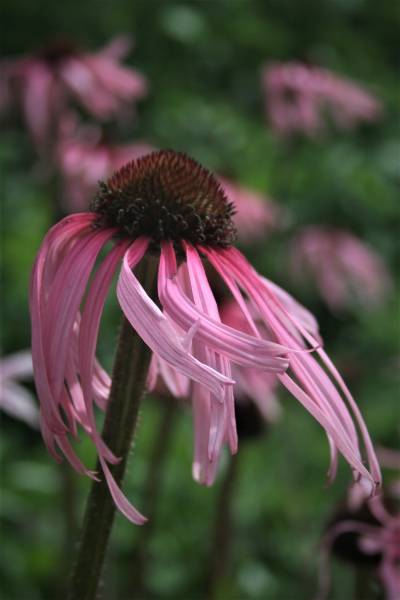COVID: Is there evidence for the use of herbal medicines as adjuvant symptomatic therapy?
21 September 2020
Medicinal plants are used widely by patients to prevent and treat Covid-19 as well as many other respiratory conditions. This gives rise to concerns about potential risks.
A tri-national, multidisciplinary team lead by Dâmaris Silveira (University of Brasilia, Brazil), Dr. José Prieto-Garcia (Liverpool John Moores University, UK) and Prof Michael Heinrich (UCL School of Pharmacy, UK) assessed potential benefits and risk and their finds were just published in Frontiers in Pharmacology, Section Ethnopharmacology.
In the search of COVID-19 symptoms relief, people, often in communities with limited or restricted access to healthcare have been turning their eyes on herbal medicines. In such situation is almost inevitable to see hoaxes and fake news involving miraculous medicinal plants, without any evidence for benefits.
Prof Michael Heinrich says: "We cannot ignore that people will seek such products and our scientific task is to assess potential benefits and risks. Pharmacists must be able to advise patients on herbal medicines also in times of a pandemic."

The lead author from Brazil, Prof Damaris Silveira, highlights: “Our duty as both pharmacists and scientists is to unambiguously advice public and patients on the best use of medicines, including herbal medicines. Brazil is a country offering strict regulation for herbal products and they may be of help during the COVID-19 pandemic.”
Dr Jose M Prieto-Garcia adds: “We cannot just ignore that a long list of medicinal plants endorsed by the World Health Organisation, The European Medicinal Agency, and many other national and regional pharmacopoeias exist. Our work aims to booster a high-level discussion on their use during the current COVID-19 pandemic and eventually reach a consensus between the scientific and clinical communities towards their use in healthcare.”
Based on these needs, 39 herbal medicines, most of them widely used to treat Covid-19, were evaluated according to a modified PrOACT-URL method with paracetamol, ibuprofen, and codeine as reference drugs, aiming at a risk/benefits assessment.
Marshmallow (Althaea officinalis), myrrh (Commiphora molmol), licorice (Glycyrrhiza glabra), ivy (Hedera helix) and elderflower (Sambucus nigra) show some evidence to be used against symptoms in milder forms of COVID-19.
For garlic (Allium sativum), green chiretta (Andrographis paniculate), Echinacea (Echinacea angustifolia, Echinacea purpurea), eucalyptus (Eucalyptus globulus essential oil),water willow (Justicia pectoralis), magnolia (Magnolia officinalis), umkaloabo (Pelargonium sidoides), willow (Salix sp.), ginger (Zingiber officinale) require more evidence in order to assess their benefits and safety in COVID-19, and in general, they seem to be promising.
Based on our analysis, although these 15 herbal medicines will not cure or prevent the disease, they may be used as adjuvant in the treatment of early/mild common flu and/or in the respiratory symptoms of COVID-19. Additionally, we apply the same criteria for three of the usually recommended drugs: ibuprofen, paracetamol and codeine. Only ibuprofen resulted in promising in the same context of the cited herbal medicines.
Based on this comparative analysis, we highlight that based on the current evidence, some botanical drugs, may be useful as adjuvant treatments, if high quality products are used, but we also warn against spurious health claims for unknown ‘wonder drugs’.
Further information:
Link to the article: https://www.frontiersin.org/articles/10.3389/fphar.2020.581840/abstract
Contact:
Prof Dâmaris Silveira (University of Brasilia, Brazil) (damaris@unb.br)
Dr José Prieto-Garcia (Liverpool John Moores University, UK) (j.m.prietogarcia@ljmu.ac.uk)
Prof Michael Heinrich (UCL School of Pharmacy, UK) (m.heinrich@ucl.ac.uk)
 Close
Close

